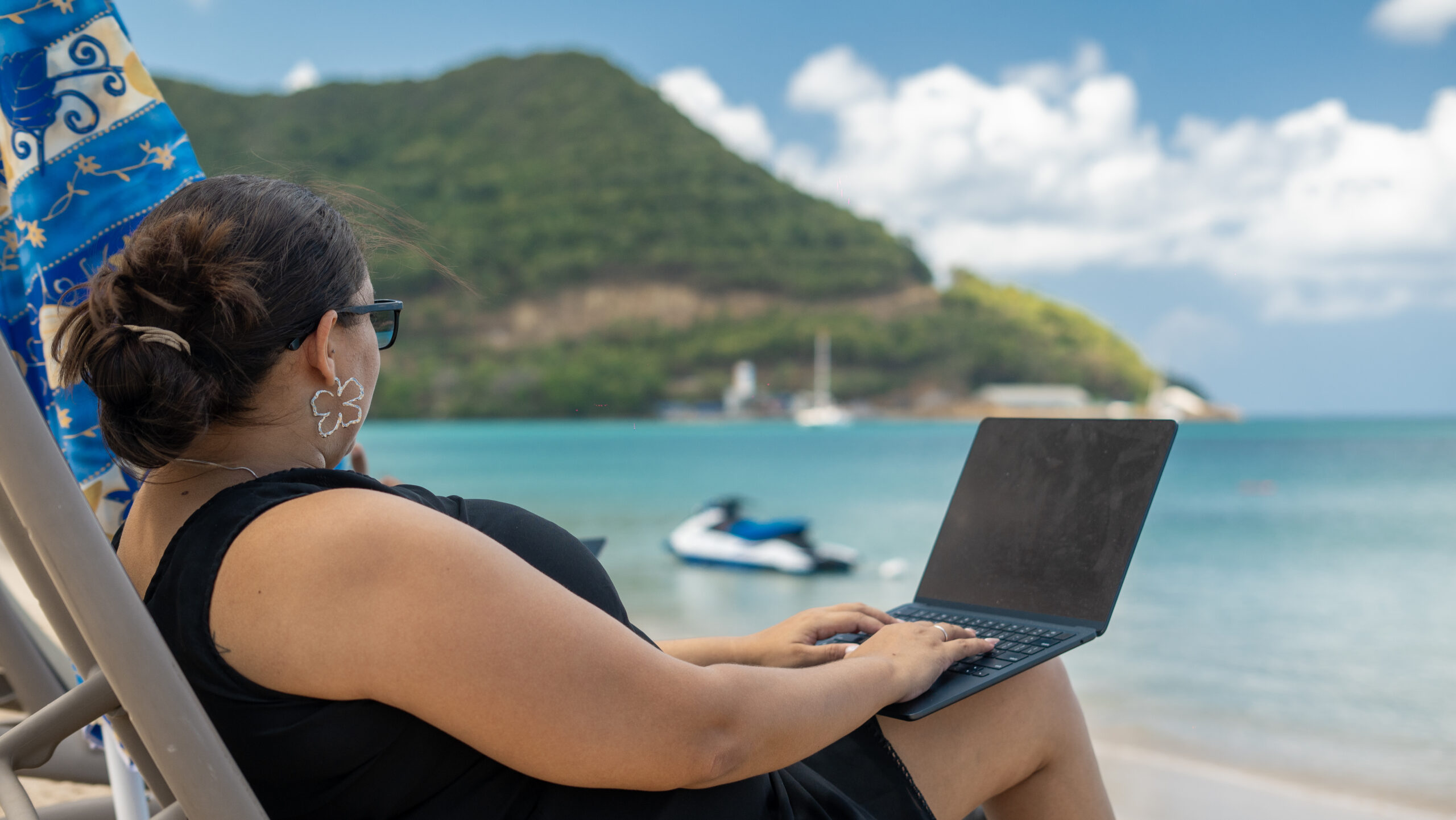Saint Lucia has been ranked 41st out of 64 destinations in the Global Digital Nomad Report 2025, a survey that measures how well countries support remote workers who move from place to place.
The ranking draws on official data and public datasets, assessing countries across six categories: procedure, citizenship and mobility, tax optimisation, economics, quality of life, and technology and innovation. Spain topped the list, followed by the Netherlands, Uruguay, Canada and Czechia, formerly part of Czechoslovakia. Within the Caribbean, only the Bahamas placed higher than Saint Lucia, ranking 35th.
Although Saint Lucia has made little deliberate effort to market itself as a hub for remote workers, the report described it as having a high cost of living but also a high quality of life, moderate innovation and the option of visa extensions — seen as an attractive attribute for digital nomads.
Limited perspectives

To get a sense of how Saint Lucia is viewed from the ground, St. Lucia Times spoke with three digital nomads who have spent time on the island. Their experiences highlight some of the advantages but also the frustrations of working remotely from here.
A French visitor who stayed for six months said the overall experience left him looking elsewhere.
“I would much rather go to another destination for expatriation or nomadic lifestyle,” he said, naming Fiji, Mauritius and Barbados among his preferences. He found the cost-of-living steep: “It was difficult to find decent places to rent… restaurants were quite pricey overall.”
A Canadian who once visited and eventually moved to Saint Lucia, where he’s lived for two decades, describing himself as “neo-nomadic”, was even sharper in his critique of food costs. “The food prices are messed up; you guys don’t have enough distributors of fresh food.”
A Dominican woman, who has worked as a digital nomad for about six years and frequently travels to Saint Lucia, has learned to keep expenses in check by shopping locally.
“Buy more local, particularly fruits and vegetables,” she said.
Internet and workspaces
Reliable internet — essential for remote work — was another mixed point. One nomad described FLOW’s service as “very poor”, while another, based at The Landings resort, said they had no issues. The Canadian noted that with Starlink, connectivity was “less of an issue”.
Working outside the home, however, proved more complicated. Nomads appear to often gravitate to the island’s north, frequenting spaces like the Rodney Bay Marina or Rituals, though venturing further can become tricky.
“A friend of mine kept going to this one café… and then they told him point blank if he wasn’t going to order more stuff, to stop,” the Dominican woman recalled, noting that her friend habitually held meetings at the establishment, which he felt drew in additional customers.
“Maybe a lot of people don’t understand the culture of that sort of thing being a net positive.”
She added that home internet could also be unreliable at times. “If you’re transferring large files or need to do video calls, that could be an issue.”

Safety and social impressions
Experiences with safety and social life varied. The Dominican woman said she had not had crime-related issues but knew another woman who was robbed three times in Gros Islet.
The French visitor offered a starker account: “There were unfriendly characters and security was non-existent, even at tourist places like the marina,” he said, adding that he felt a stronger “anti-white” sentiment from Saint Lucia than in other destinations.
Still, the Canadian emphasised an opposite experience and lauded Saint Lucia’s cultural appeal: “You guys are brilliant artists; the culture is amazing; it’s beautiful; the people – you’ll laugh a lot, which is amazing. Maybe Thailand would give you guys a run for your money, but in a different way.”
Systems and bureaucracy
Financial services were another frustration. Both the Dominican woman and her acquaintances described difficulties opening local bank accounts.
“A friend moved here with the intention of staying… he had so much trouble opening a bank account, so they left and went to Fiji,” she said.
She added that she too had encountered obstacles as a non-national.
“Documents that are difficult to procure are being asked before the application can be processed,” though she acknowledged local banks sometimes operate under external regulatory constraints.
An emerging question
For now, Saint Lucia remains on the radar of the growing digital nomad community. But with high living costs, uneven connectivity and limited work infrastructure, it may not yet be able to keep pace with countries actively courting this segment.
When it comes to stays beyond holiday and honeymoon getaways, the report puts the question squarely, ‘What long-term value does a place offer?’
For Saint Lucia, the answer — at least from the few nomads who’ve tried it — is still unsettled.




